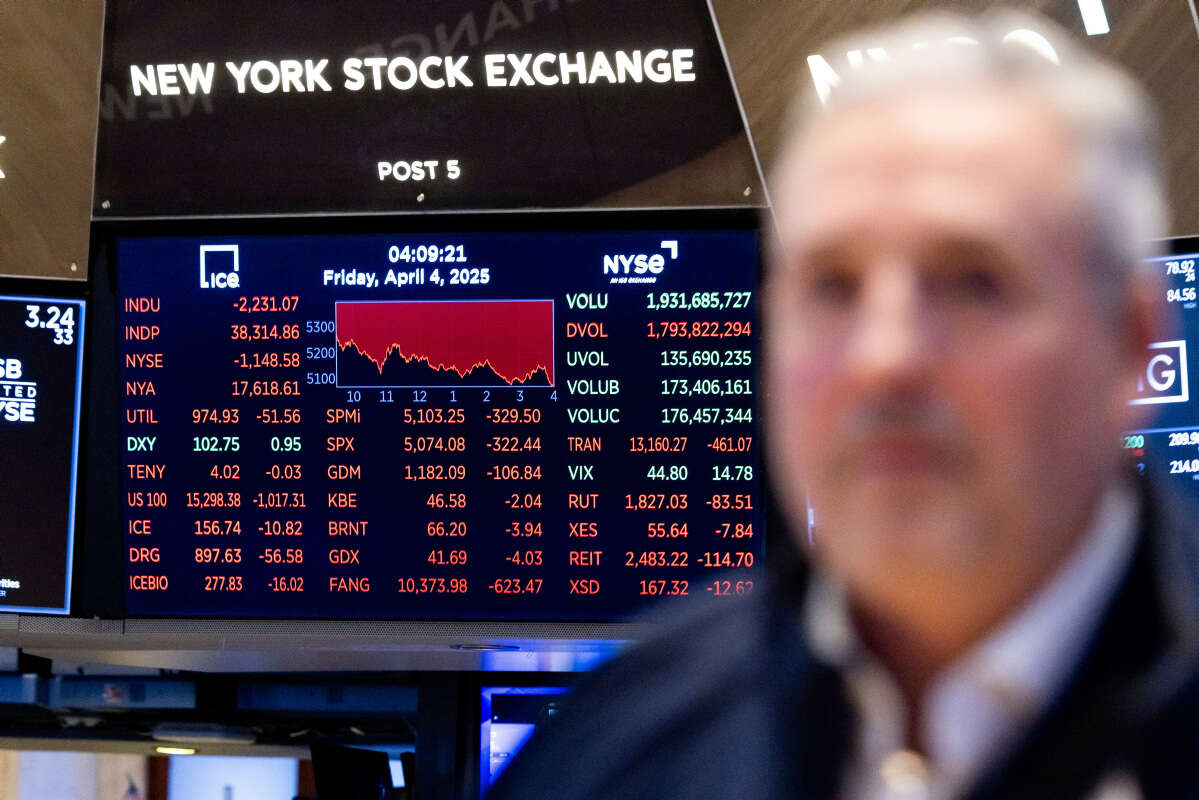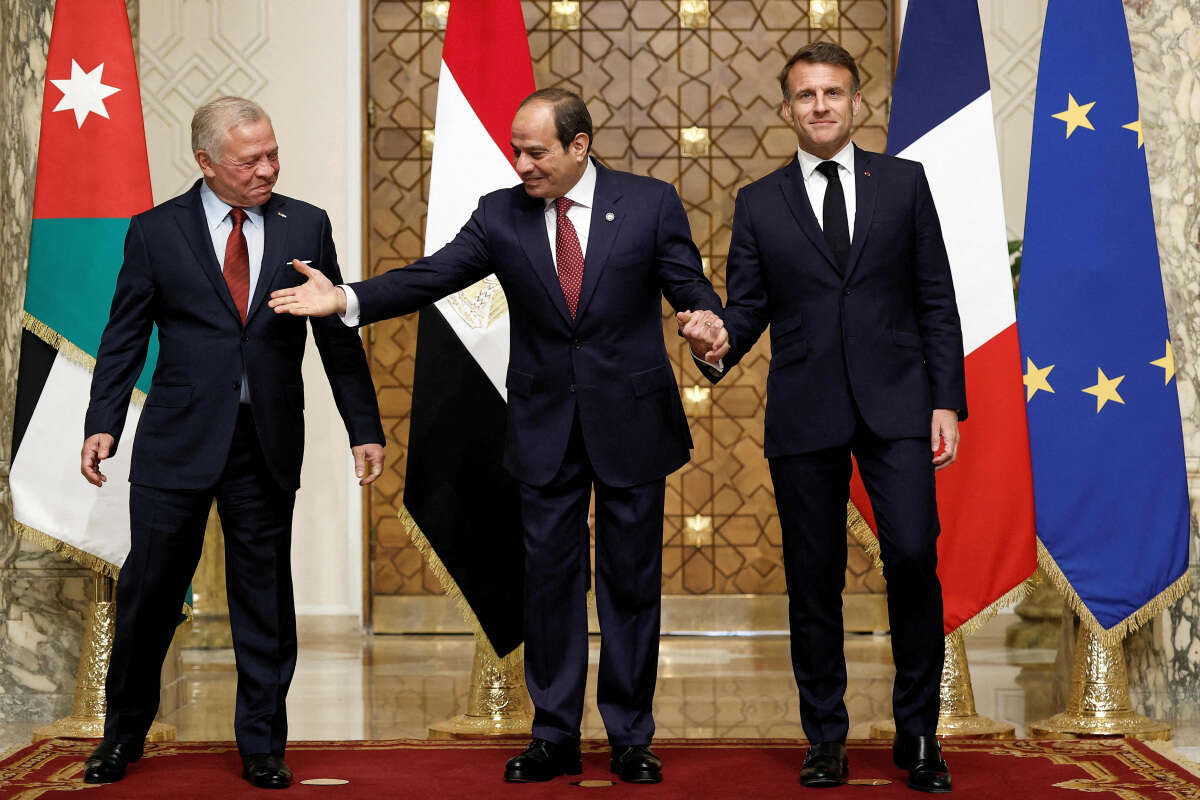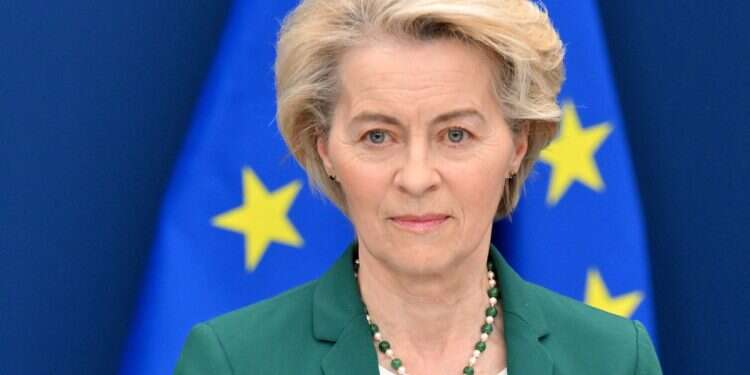European Union nations are working to demonstrate solidarity this week against President Donald Trump's extensive tariff program, with preparations underway to endorse an initial package of targeted retaliatory measures affecting up to $28 billion worth of American imports ranging from dental products to precious stones, Reuters reported.
This countermeasure would position the EU alongside China and Canada in implementing retaliatory tariffs against the United States, potentially triggering what analysts fear could develop into a worldwide trade conflict that would increase costs for consumers globally and potentially push economies into recession.
According to Reuters, the 27-member bloc faces 25% import duties on steel, aluminum, and automobiles, along with "reciprocal" tariffs of 20% on nearly all other goods starting Wednesday. Trump's tariffs encompass approximately 70% of EU exports to the United States – valued at 532 billion euros ($585 billion) last year – with potential additional duties on copper, pharmaceuticals, semiconductors, and timber expected in the future.

The European Commission, which manages EU trade policy, will present to member states late Monday a catalog of American products to be subjected to additional duties in response to Trump's steel and aluminum tariffs rather than the broader reciprocal levies. This list is expected to include American meat, cereals, wine, wood, clothing, chewing gum, dental floss, vacuum cleaners, and toilet paper.
One item that has garnered particular attention and revealed disagreements within the bloc is bourbon. Reuters reported that the Commission has designated a 50% tariff on this product, prompting Trump to threaten a 200% counter-tariff on European alcoholic beverages if the bloc proceeds with its plan. Wine exporters France and Italy have both expressed reservations. The EU, whose economy heavily depends on free trade, is determined to ensure widespread support for any response to maintain pressure on Trump to ultimately engage in negotiations.
Luxembourg will host on Monday the first EU-wide political gathering since Trump announced the comprehensive tariffs, bringing together trade ministers from all 27 EU members to discuss the impact and determine the best course of action. EU diplomats indicated that the primary objective of the meeting was to emerge with a unified message expressing willingness to negotiate with Washington for tariff removal, while also demonstrating readiness to implement countermeasures if that approach fails.

"Our biggest fear after Brexit was bilateral deals and a break of unity, but through three or four years of negotiations that did not happen. Of course, here you have a different story, but everyone can see an interest in a common commercial policy," one EU diplomat said.
Among EU members, there exists a spectrum of opinions regarding the appropriate response. France has suggested the EU should develop a package extending beyond tariffs, and French President Emmanuel Macron has proposed that European companies should suspend investments in the United States until "things are clarified."
Ireland, which sends almost a third of its exports to the United States, has advocated for a "considered and measured" response, while Italy, the EU's third largest exporter to the US, has questioned whether the EU should retaliate at all. "It's a difficult balance. Measures cannot be too soft to bring the United States to the table, but not too tough to lead to escalation," the EU diplomat explained.

Discussions with Washington thus far have yielded little progress. EU trade chief Maros Sefcovic characterized his two-hour exchange with American counterparts on Friday as "frank" as he informed them US tariffs were "damaging, unjustified."
The initial EU counter-tariffs will be put to a vote on Wednesday and will be approved unless a qualified majority of 15 EU members representing 65% of the EU's population oppose it – a scenario considered highly unlikely, according to Reuters. They would take effect in two phases, with a smaller portion implemented on April 15 and the remainder one month later.
Commission President Ursula von der Leyen will also conduct separate discussions on Monday and Tuesday with chief executives from the steel, automotive, and pharmaceutical sectors to evaluate the tariffs' impact and determine subsequent actions.




